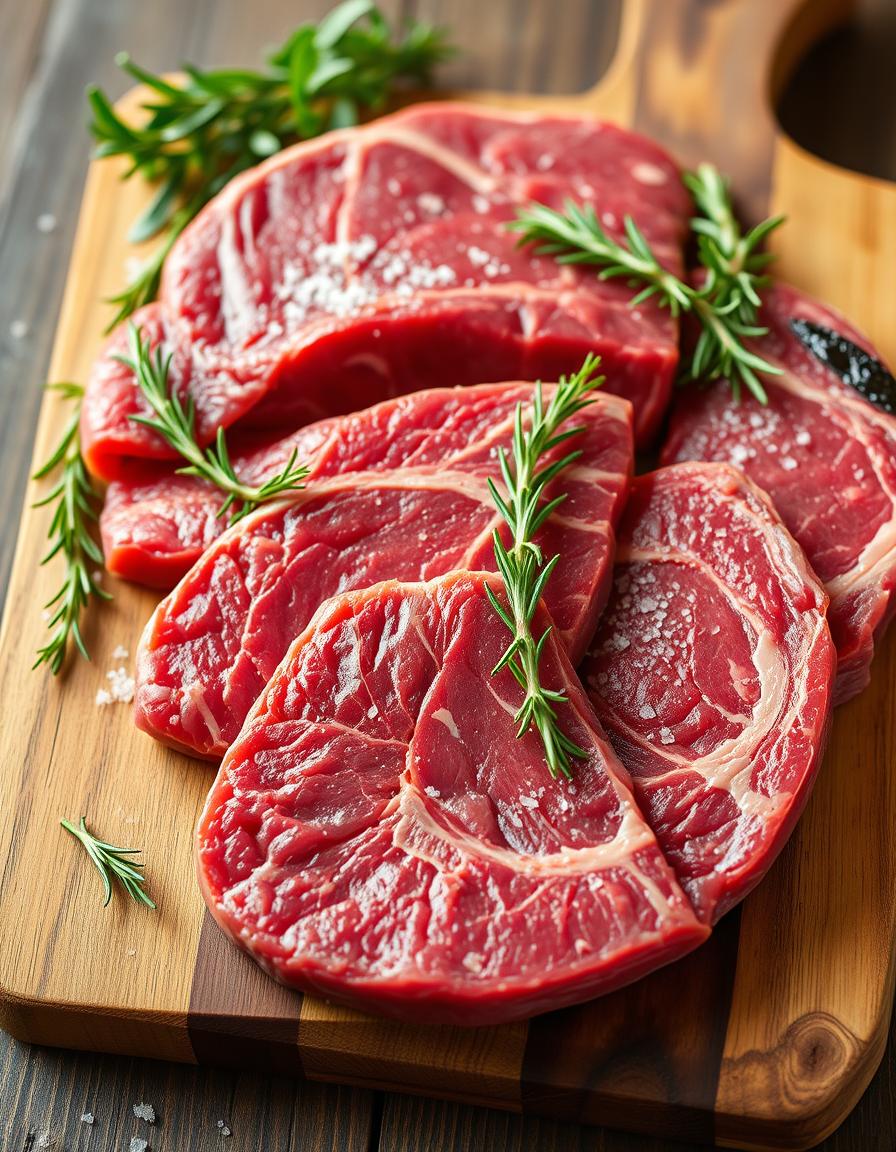Lean beef is a popular choice for people aiming to build muscle, lose fat, or just enjoy a tasty and nutritious meal. Knowing the lean beef protein content per 100g helps you understand how much protein you’re getting without too much fat. Protein is essential for repairing tissues, making enzymes, and supporting overall health, so understanding this number can make meal planning much easier. Whether you’re a gym enthusiast or just curious about your food, this guide breaks it down in an easy-to-understand way.
What Is Lean Beef?
Lean beef refers to cuts of beef that contain lower amounts of fat compared to regular beef. The term “lean” usually means the meat has less than 10 grams of fat, 4.5 grams or less of saturated fat, and fewer than 95 milligrams of cholesterol per 100 grams. Common lean cuts include sirloin, tenderloin, round steaks, and eye of round. These cuts give you a high protein punch without adding too many calories from fat.
Choosing lean beef is a smart way to enjoy the taste of beef while keeping your diet healthier. It offers the best of both worlds—great flavor and a high nutrient content with less fat.
Understanding Lean Beef Protein Content Per 100g
The lean beef protein content per 100g varies slightly depending on the specific cut, but generally, 100 grams of lean beef provides around 20 to 25 grams of protein. That’s a solid amount considering the recommended daily protein intake for adults is about 50 grams, depending on activity level.
Here’s a quick breakdown:
| Cut of Lean Beef | Protein per 100g (grams) | Fat per 100g (grams) |
|---|---|---|
| Top Sirloin | 23 | 5 |
| Eye of Round | 24 | 3 |
| Bottom Round | 22 | 4 |
| Tenderloin | 25 | 6 |
As you can see, the protein content shifts a bit with different cuts, but all lean beef is a great source of protein.
Why Is Protein Important?
Protein is like the building blocks of your body. It helps build muscles, repair damaged cells, and supports a healthy immune system. If you’ve ever hit the gym hard or had a long day, your muscles need protein to recover, and lean beef provides just that.
For anyone trying to lose weight, protein also keeps you full longer, making those afternoon snack attacks easier to handle. Plus, it helps keep your metabolism humming along.
Comparing Lean Beef to Other Protein Sources
Lean beef stacks up well against other popular protein sources. Here’s a quick comparison of protein content per 100 grams:
- Chicken breast: 31 grams of protein, 3.6 grams of fat
- Salmon: 20 grams of protein, 13 grams of fat
- Tofu: 8 grams of protein, 4.8 grams of fat
- Eggs: 13 grams of protein, 11 grams of fat
So, lean beef offers quite a competitive protein punch with comparatively moderate fat levels. It’s also rich in important vitamins like B12 and minerals such as iron and zinc, which are vital for energy and immunity.
Tips to Maximize Protein Intake from Lean Beef
- Opt for grilling, broiling, or baking to avoid adding unnecessary fats.
- Trim visible fat before cooking to ensure lower fat content.
- Pair lean beef with fiber-rich vegetables to aid digestion and overall health.
- Plan meals around lean beef servings of about 100-150 grams to meet protein goals efficiently.
For those interested in unique ways to improve their physique naturally, supplements like Nagano Lean Body can sometimes support your nutritional goals along with a balanced diet.
How Cooking Affects Protein Content
Cooking meat changes its water content, which might make the protein amount look slightly different. When you cook beef, it loses water and fat, so the protein concentration per gram can increase. However, the absolute amount of protein stays about the same. For example, 100 grams of raw lean beef might provide about 22 grams of protein, but after cooking, it weighs less and thus appears to have more protein per 100 grams.
Keep in mind that overcooking can sometimes reduce nutrient availability, so it’s best to cook lean beef to a safe but moderate level.
Quick Cooking Methods for Lean Beef
- Stir-frying sliced lean beef with vegetables
- Grilling steaks to medium rare or medium
- Slow cooking lean cuts to make them tender while preserving nutrients
Health Benefits of Lean Beef Beyond Protein
Lean beef isn’t just about protein — it brings other health benefits to the table. It contains:
- Iron: Helps prevent anemia and boosts energy levels.
- Zinc: Supports immune system function.
- B Vitamins: Essential for energy production and brain health.
- Creatine: Naturally helps with muscle strength and endurance.
These nutrients work together with protein to give you a well-rounded food that supports overall wellness and muscle health.
What to Watch For When Choosing Lean Beef
Even though lean beef is healthier than fattier cuts, some things are worth keeping an eye on:
- Portion size: Eating large amounts can still add up in calories.
- Source: Grass-fed beef tends to have a better fat profile, including higher omega-3s.
- Processing: Avoid processed beef products that contain added salt and preservatives.
Making smart choices ensures you get the maximum benefit from your lean beef servings without unwanted extras.
Conclusion
Understanding lean beef protein content per 100g helps you make informed decisions about your diet. Lean beef provides a high-quality protein source that can support muscle growth, recovery, and overall health while keeping fat intake in check. By choosing the right cuts, cooking methods, and serving sizes, you can enjoy delicious meals that fit your nutritional goals. Plus, with its wealth of vitamins and minerals, lean beef is truly a unique food to have in your healthy eating toolkit.

Hardik is the visionary founder and driving force behind Leanry.com, a platform committed to empowering individuals through reliable health information, wellness tips, and actionable content for a healthier lifestyle.

